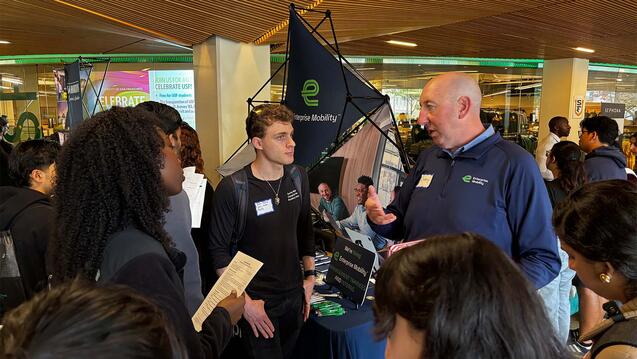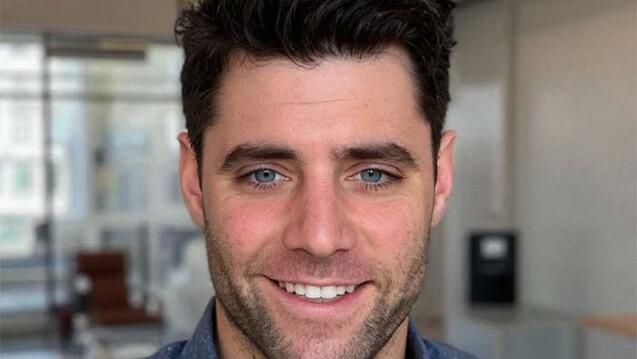Summer Reading Program is Learning Opportunity for Teachers & Students Alike
It’s a Wednesday evening in the middle of summer and Stuart Hall High School in San Francisco is filled with the excited voices of elementary and middle school students. Tonight is Open House at the USF/Mo’MAGIC/Heart-to-Heart Summer Reading Program, an opportunity for student participants of the summer enrichment program to share their accomplishments with friends and family.
Established in 2007, the Summer Reading Program is a partnership between the University of San Francisco School of Education Master of Arts in Teaching Reading (MATR) program, Mo‘ MAGIC, a non-profit that serves the Western Addition community of San Francisco, and Heart-to-Heart, a program of the Schools of the Sacred Heart in San Francisco. The program is led by Dr. Helen Maniates (Assistant Professor, USF Teacher Education Department) and Sheryl Davis (Executive Director, Mo’MAGIC). For five weeks each summer, graduate students enrolled in the MATR program team-teach reading classes for first through eighth grade students with program staff from Mo’MAGIC-affiliated organizations. Classes are divided by grade level and remain small, usually 15 students, to give each of the 175 student participants access to individualized literacy instruction.
“As a teacher, when a rising second grade student can be filled with such joy for reading, I know that a lifelong passion for reading is being fostered,” explains Savanna Susnow who taught in the reading program this summer. “These moments of pride makes me, as a teacher and community member, ecstatic to be able to work with our community leaders of tomorrow, today.”
The program is an important learning opportunity for both students and teachers. For students, the program offers an opportunity to enhance reading engagement during the summer, a time of year when students typically experience learning loss. For teachers, it is a space to develop teaching skills while working collaboratively with colleagues in a community-based setting.
“The five week program offered an opportunity for my development as a teacher that I have not been able to find anywhere else,” explains teacher Carlo Delgadillo. “Working so closely with three of my colleagues brought a new level of understanding for student development and professional development that would not have been possible otherwise.”
Adds teacher Trisha Hong, “as a teacher, this program challenges us to get creative and make reading and writing as engaging as possible. It is a great lesson because this is how reading and writing should be throughout the school year.”
This summer, the Summer Reading Program focused on two main texts - Brown Girl Dreaming by Jacqueline Woodson for grades 3-5 and March: Book One by John Lewis for grades 6-8. Students in grades 1-2 received The Other Side, a picture book by Jacqueline Woodson. The books were selected to reflect the 2015 Summer Theme, “Making History - Past, Present & Future.” Throughout the program, the classes read and completed activities based on the book. At the end of the summer, Mo’MAGIC provided each child a copy of their book to take home.
“Our priority is always student development and ensuring they are challenged in a safe, loving, low-risk environment,” says Delgadillo. “I think we were able to create this space in an academic setting, but with student social needs driving our approach.”
Since the majority of teacher preparation takes place in a traditional classroom during the academic year, the Summer Reading Program plays an important role in exposing teachers to ways that supplemental academic experiences can benefit students academically while also building relationships with the community. This training is particularly important since the Summer Reading Program is the culminating course of the MATR program. Many of the teachers will begin their first teaching jobs shortly after the program ends. Those who are more experienced will start or resume jobs as reading specialists.
“I have learned that our work as educators is never complete. Having an opportunity to work with our students this summer proved the need for services beyond the classroom,” explains Delgadillo. “In our classroom of seventh and eighth graders we had to find a balance between engaging youth and providing academic support. As educators we must develop students holistically--as people and as scholars.”
Says Hong, “I believe that [the program] helps to create another strong community of students and families that may not attend the same school, but have similar goals - to keep their kids reading and learning throughout the summer while also having a meaningful and fun memory to look back on.”


